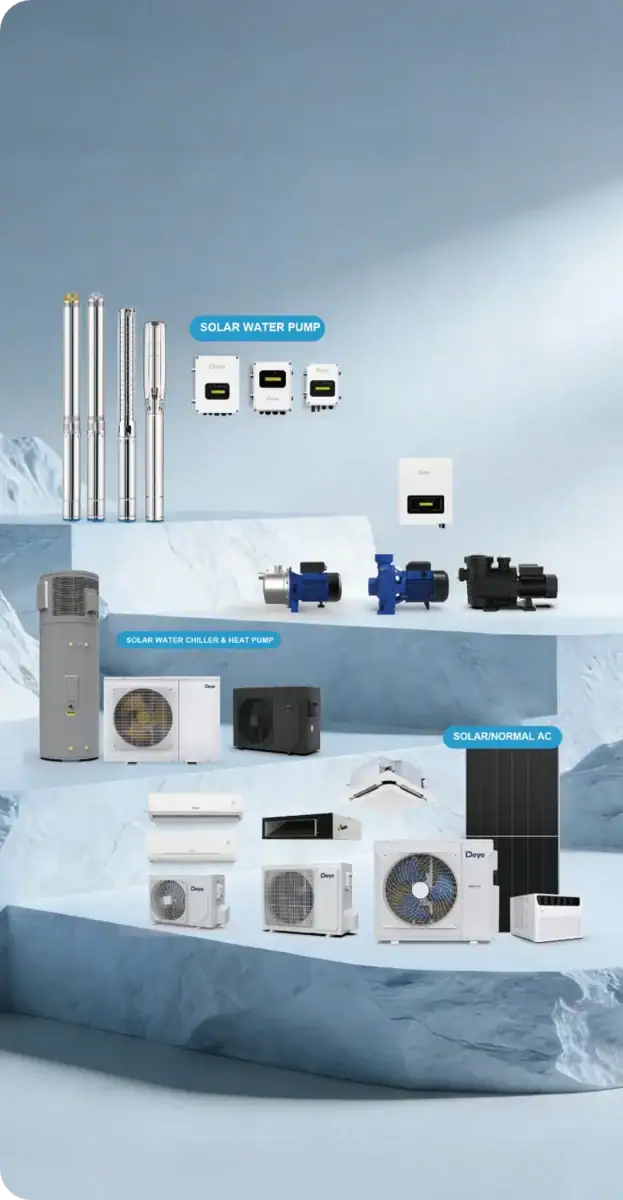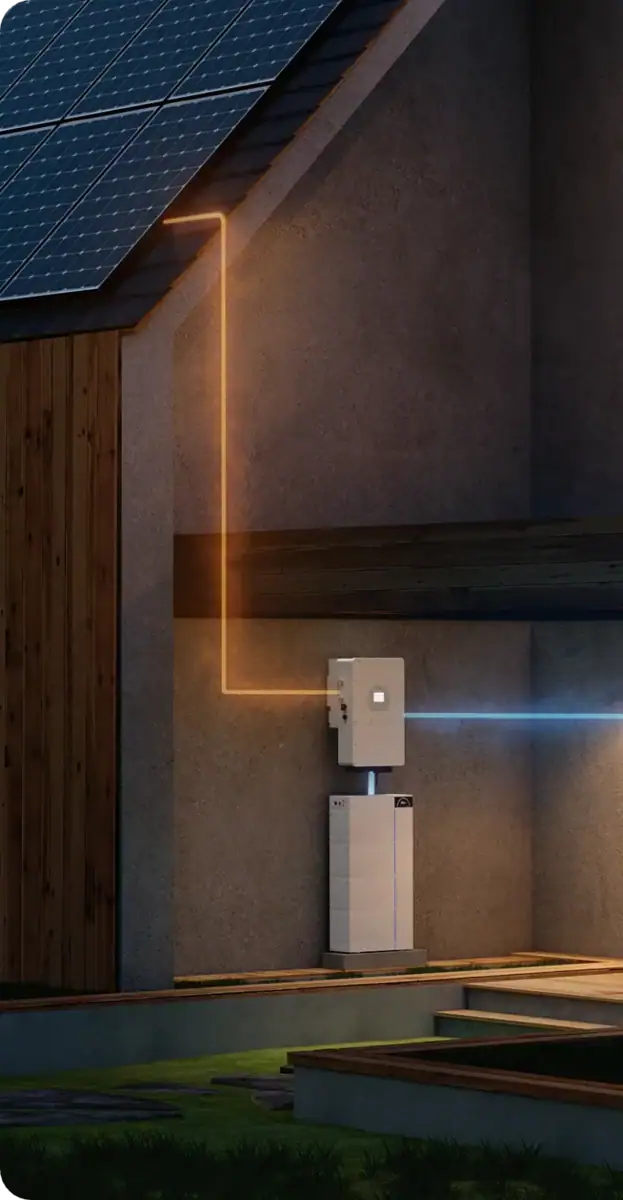The solar battery cost for home use varies between $6,000 and $11,000, with the average homeowner spending around $10,000. If you want to take advantage of the free electricity generated by your solar panels or upgrade your reusable battery setup, investing in a solar battery system is wise. However, before you can start saving, it’s essential to budget for the cost of the system. Here’s what you need to know about the cost of solar batteries and factors that may impact the price of your home solar battery system.
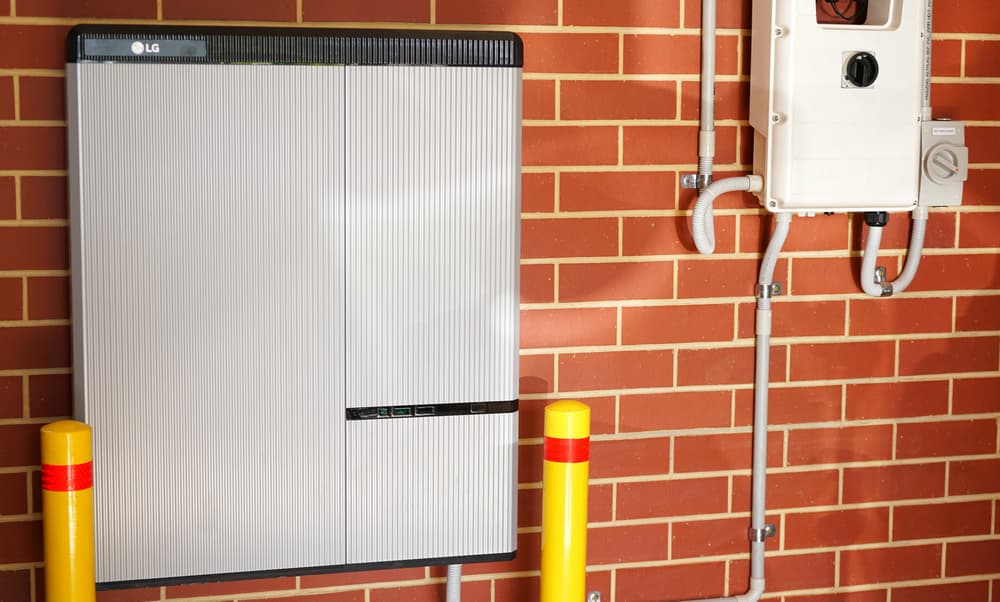
How do solar batteries work
Solar batteries serve as large-scale power banks that store energy from photovoltaic solar panels rather than electrical outlets. These panels constantly capture energy from sunlight during the daytime, which can be saved in solar batteries for later use. Since solar panels generate the most energy during peak sunlight hours, solar batteries provide a handy way to reserve this energy for use in the evening when energy consumption is at its highest.
Any excess energy generated gets sent back to the electricity grid if you’re using grid-tied solar power systems without solar batteries. Depending on where you live, you may receive compensation through net-metering programs, which can be deducted from your electricity bill.
Choosing between an off-grid solution with solar batteries and a grid-tied system that relies on traditional electricity grids should be based on your specific use case and is worth exploring before deciding.
How much do solar batteries cost in 2023
The cost of installing a solar battery varies widely and depends on its chemistry, ranging from $200 to more than $15,000.
Lithium-ion batteries are commonly used for residential grid-tied solar panels and can cost between $7,000 and $15,000 to install. On the other hand, small-capacity lead-acid batteries can be relatively inexpensive, costing as little as $200. However, their capacity to power household appliances and devices is limited, and they are more commonly used as emergency backup power sources for RVs.
While the cost of solar batteries has decreased in recent years, they still require a significant investment that many people may not be able to afford. However, there is good news. Solar batteries are eligible for the 30% federal solar tax credit, which can help reduce the upfront cost. Additionally, some states offer further incentives for solar batteries, which can further lower the initial investment required.
7 Factors that influence energy storage cost
When searching for off-grid solar power solutions, you may encounter a wide range of prices, which can be confusing if you’re unfamiliar with the market. To help you make an informed decision, it’s important to consider several factors that affect the cost of a renewable energy storage system. They include:
Solar battery manufacturer
Similar to other products, the retail price of a solar power solution determines the initial cost. However, it’s essential to note that prices and quality can vary significantly even among seemingly identical products.
While looking for deals is always advantageous, it’s crucial to remember that solar power is a long-term investment. Investing a little extra in high-quality products can pay off in the long run. Since solar battery systems can last up to fifteen years, it’s worth investing in the best solution that fits your budget.
Number of batteries in your system
It’s typical for effective off-grid solar power systems to require multiple solar batteries. Naturally, the cost of the system increases as the number of batteries required increases.
To make an informed decision about the amount of solar energy storage you need, it’s important to accurately calculate your regular power consumption. You can learn more about calculating electricity requirements to determine energy storage needs.
The quality of the batteries
The cost of energy storage involves both upfront and maintenance costs and the battery’s lifespan. It’s important to consider the battery’s longevity when purchasing. Opting for a lower-priced battery that only lasts a few years could result in higher long-term costs than a more expensive battery that lasts ten years or more.
The capacity of the batteries
The capacity of your solar battery system is the main cost factor, typically ranging from $400 to $750 per kilowatt-hour (kWh). An average solar battery system has a capacity of 10 kWh, which translates to a cost of $4,000 to $7,500 for the battery alone, excluding installation. However, if you need less capacity, you can purchase individual batteries for smaller or larger systems for homes requiring more than the average capacity.
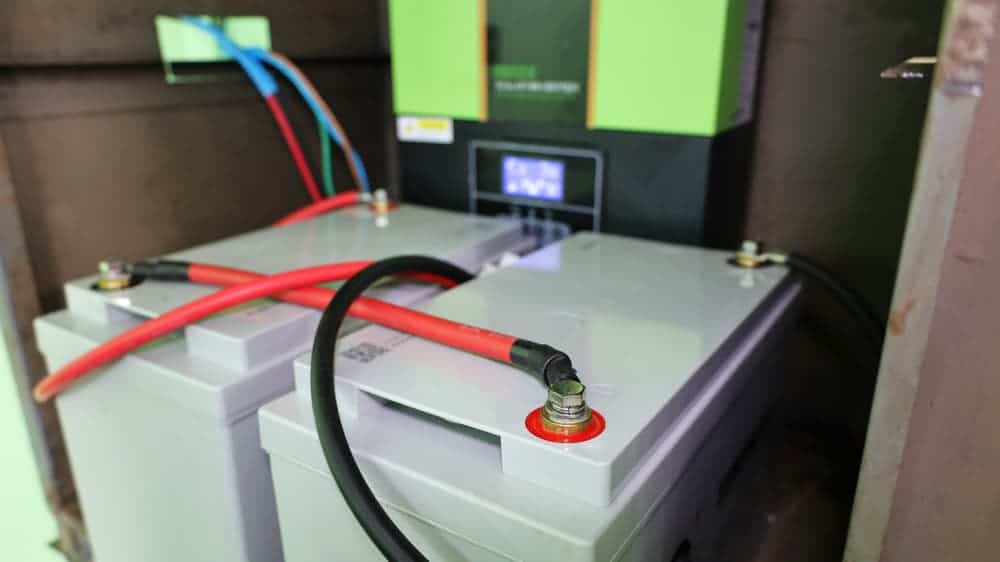
Battery Chemistry
While various battery types are available, most residential solar power systems use lithium-ion batteries. Two common lithium-ion chemistries used for solar batteries are nickel manganese cobalt (NMC) and lithium iron phosphate (LFP). NMC batteries, such as the LG Chem Prime, have been available for extended periods, making them relatively less expensive than LFP batteries, such as the Enphase IQ.
Although lead-acid batteries are an alternative option due to their lower cost, they have a shorter lifespan, lower capacity, and require regular maintenance, making them less favorable than lithium-ion batteries for most homeowners.
Backup load panel
Typically, solar batteries can’t power all the appliances in your home. Although essential items such as lighting and refrigerators will continue to function, running an air conditioner during an outage or off-grid would require multiple batteries.
Since a solar battery can’t supply power to the entire house, it may be necessary to install a sub-panel that only backs up the essential appliances during a power outage. Adding a sub-panel, a backup, or a critical load panel can increase installation costs by $1,000 to $2,000.
Installation labor costs
The cost of installing a home solar battery system also depends on the labor required. Suppose the battery is being installed simultaneously with the solar panels. In that case, the labor costs may be lower because all the necessary electrical work and permits for both systems can be completed simultaneously.
However, suppose the battery is being added to an existing solar panel system. In that case, the labor costs may be higher because new permits need to be filed, additional incentive forms may be required, and additional electrical work may need to be done to connect the battery to the existing solar panels.
Why you need a solar battery storage system
What are the reasons behind the growing popularity of solar storage systems? Here are some of the most convincing benefits they offer.
1. Its the future of green energy
In response to the climate crisis, a lot of people are seeking environmentally-friendly ways to live. They utilize solar power to power their devices and appliances instead of solely relying on the grid. It’s a great option that not only saves money on energy bills but also contributes positively to the environment, so what’s not to like?
2. It could save you money
It’s a fact that having a solar power system brings significant financial advantages since producing and storing your electricity means that you’re less reliant on the grid, resulting in lower monthly electric bills.
Depending on where you live, you may be eligible for tax credits and other incentives when you buy a solar power system and produce your renewable energy.
3. It’s a long-term investment
Solar batteries can maintain their efficiency for up to fifteen years with regular use, and solar panels can last even longer, which is an impressive lifespan to consider. Despite the initial cost, the long-term savings from producing your own energy for the next decade and a half will offset the investment.
4. Protects you from power cuts
Reducing your dependence on the grid gives you energy independence and shields you from more frequent blackouts. With solar batteries powering your home, your appliances and devices won’t fail during an outage.
Investing in off-grid energy solutions, such as power kits, can provide greater outage protection. These systems are entirely off-grid and offer true energy independence through modular design.
Generally, a solar battery storage system provides numerous benefits, including energy independence, financial savings, environmental sustainability, and protection against power outages.
Additional costs to consider
The cost of a solar battery system for homes can be complex, as it involves additional expenses. Here are a few additional costs you might want to consider.
Maintenance
On average, hiring a local solar company to inspect and maintain your battery system costs between $150 and $300, and regular maintenance can extend the lifespan of your solar batteries by including an inspection, battery rotation, and terminal cleaning.
Repairs
Solar battery systems that are fully integrated and housed in protective storage containers can be convenient and discreet, but repairing them can be more difficult. That’s why contacting a professional through your preferred company is important to avoid voiding any warranties.
Replacement
The expense of replacing a solar battery is determined by its capacity, including the cost of the battery and any installation expenses if professional assistance is necessary. However, some smaller batteries may not require a professional.
It’s important to note that if you have used multiple solar batteries in your system, the cost to replace them may be significantly lower than a single high-capacity battery. However, if all batteries have expired after the typical 10-15 year lifespan, it may be more cost-effective to replace the entire system, while only replacing a single faulty, low-capacity battery can be more affordable.
Solar battery systems are often flexible, allowing for easy replacement of old batteries with new ones. Still, it’s important to avoid mixing and matching battery types with different capacities, similar to standard batteries. Suppose your solar battery system uses lithium-ion batteries with an individual capacity. In that case, it’s not advisable to substitute an old battery with a lead-acid battery with a different capacity.
Electrical Wiring
If you plan on setting up a solar battery system in a location without access to electrical wiring and outlets, hiring a local electrician to rewire your house may cost you between $6 and $10 per square foot. Typically, straightforward rewiring tasks can be completed for approximately $1,500.
An easily installable solar battery readily accessible to your electrical system presents a less complicated task for your installers. On the other hand, a solar battery that’s situated far from your electrical system may incur higher installation costs.
Inverter
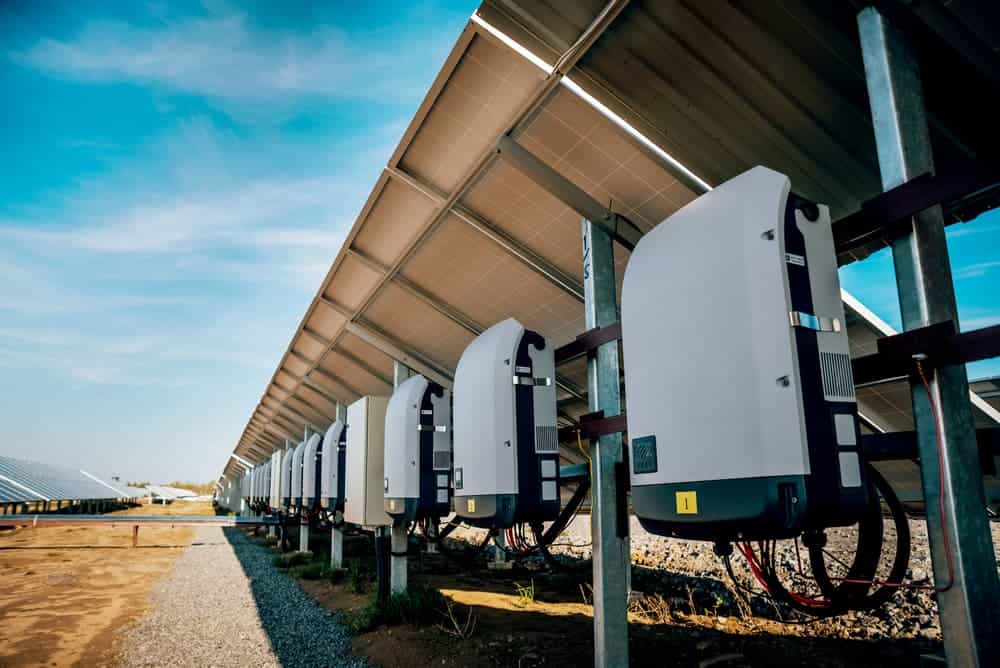
If your solar battery system stores DC energy but lacks a built-in inverter, you should expect to allocate an additional $1,000 to $1,500 toward purchasing an inverter. The majority of solar batteries require an inverter to transform direct current (DC) electricity into alternating-current (AC) electricity that your household appliances can utilize.
Critical load panel
On average, a critical or backup load panel can cost between $1,000 and $2,000. This panel can be of utmost importance for households that require essential technology or medical equipment to remain operational during a power outage.
Solar panels and solar batteries make a great pair
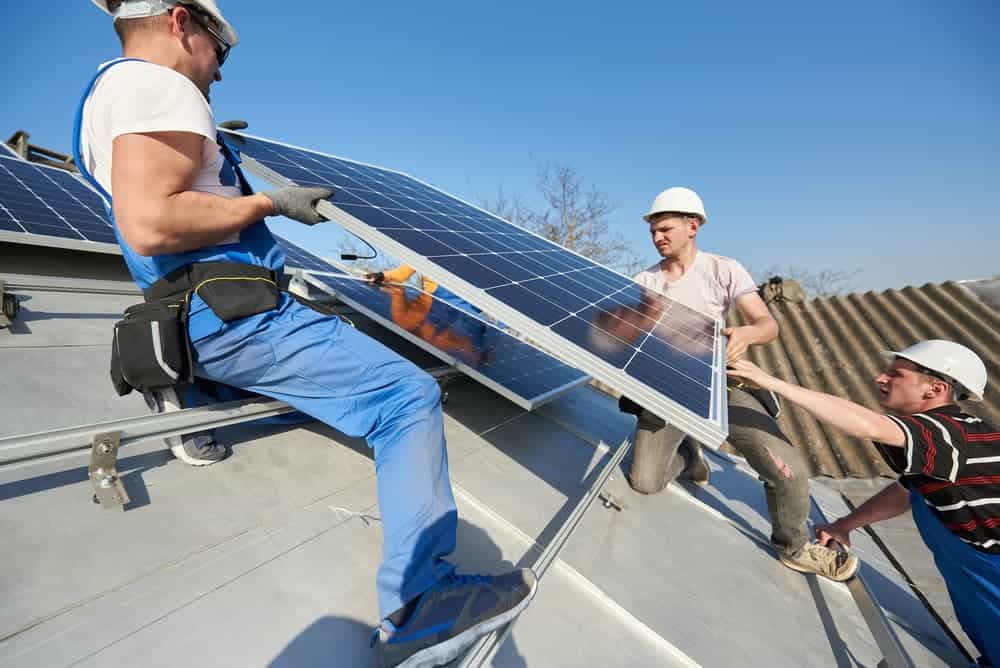
Adding a solar battery storage system to your solar panel installation can enhance the benefits you receive from it. With a solar battery, you can have a reliable backup power source, boost your energy independence, and even reduce your electricity bill by drawing power from the battery instead of the grid.
However, it’s important to note that solar battery systems come at a cost. If you’re only looking to save money on your electricity bill, a solar battery may not be the best option, particularly if your utility provides net metering. Nevertheless, a battery backup to store energy for later use will be advantageous if you live in an area prone to blackouts or have Time-of-Use (TOU) utility rates.
The good news is that solar battery technology costs are declining, and solar batteries are expected to become standard with all solar energy systems.
To ensure you get the best value for your investment, it’s recommended that you contact multiple reputable battery storage installers to get high-quality installation at the best possible price.
How to save money on a solar battery system
Undeniably, solar batteries entail a significant financial investment, so finding cost-saving methods is crucial. To help you with this, below are some tips on how to save money when purchasing solar batteries.
- Install solar batteries with solar panels: Opt for a combined installation of solar batteries and solar panels, which may save you money on installation costs compared to separate installations.
- Apply for the federal solar tax credit: This credit can help you save up to 30% on the cost of your solar battery system when filing your tax return.
- Look for local rebate programs: Check with your local government and utility companies for solar incentives available in your state. Different states may offer various rebate programs, so exploring your options is crucial.
- Install yourself: If you have experience working with solar systems, consider installing the battery system to save on installation costs. However, this is only recommended if you possess the necessary expertise.
Investing in a solar battery storage system can provide many benefits. Still, it’s important to consider factors such as your location, energy needs, and available incentives to determine if it’s the right choice for you and to explore ways to reduce costs, such as applying for tax credits and researching local rebate programs.
Are solar batteries worth the extra cost?
While combining solar panels with energy storage is increasingly common, it may not be ideal for every homeowner. Opting for a solar battery storage solution is most beneficial for those who live in areas with frequent power outages, limited full-retail net metering, or available battery incentives. Additionally, if you’re environmentally conscious, installing solar batteries will maximize your home’s use of renewable energy.
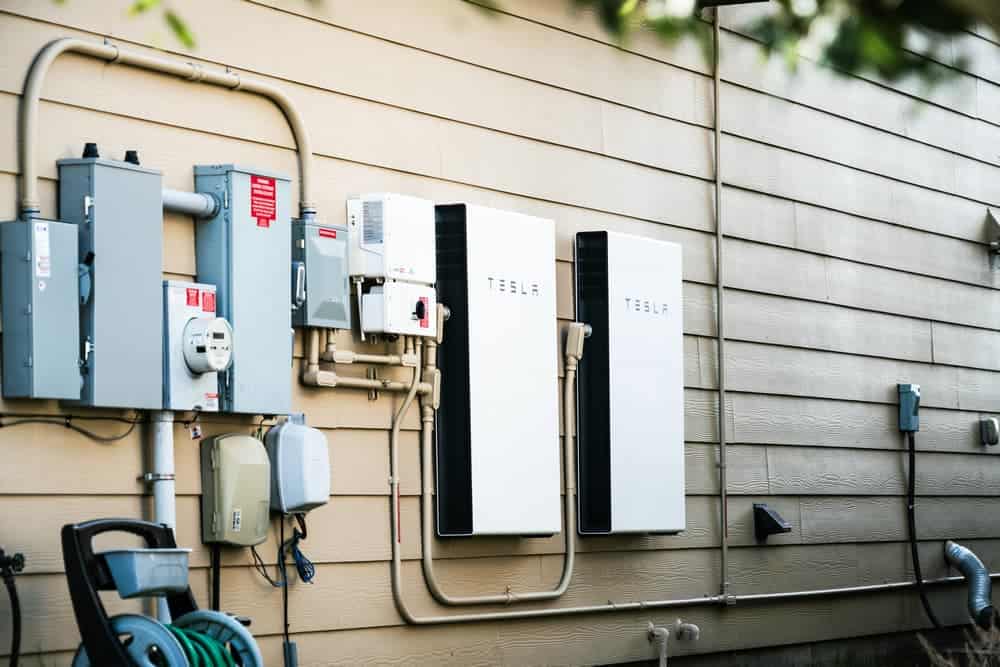
However, if your primary objective is to save money, a solar battery may not be a cost-effective investment. For example, if you live in a state with full-retail net metering, a battery will not provide any additional savings beyond the savings you would receive without one. Instead, it would only increase the cost of your solar installation while offering peace of mind during a power outage.
Investing in solar batteries can be a valuable decision for various reasons, such as achieving long-term financial savings on electricity bills, achieving energy independence, and positively impacting a more sustainable environment.
Solar battery cost savings
The installation of home solar batteries can lead to annual savings ranging from $700 to $1,100, depending on the system’s size. The cost of a standard-sized solar battery is approximately $10,000, which can be reduced to around $7,000 through the solar tax credit.
Consequently, it may take between six to 10 years to recoup the investment and start seeing the returns. It’s worth noting that some local rebates and incentives may exceed the 30% tax credit or offer more favorable net metering programs, allowing you to pay off the system in as little as five years. Therefore, it’s advisable to consult with local electric companies and municipal authorities to discover potential savings in your area.
Conclusion
Solar battery costs can vary greatly depending on several factors, including the capacity and type of battery, installation complexity, location, and additional equipment such as inverters and backup load panels. While solar batteries can offer a cost-effective and environmentally friendly alternative to traditional power sources, it’s important to carefully consider all associated costs and benefits before purchasing.
With the increasing availability of solar energy and advancements in battery technology, the costs of solar batteries are expected to decrease in the coming years, making them an even more attractive option for households and businesses looking to reduce their reliance on fossil fuels.







